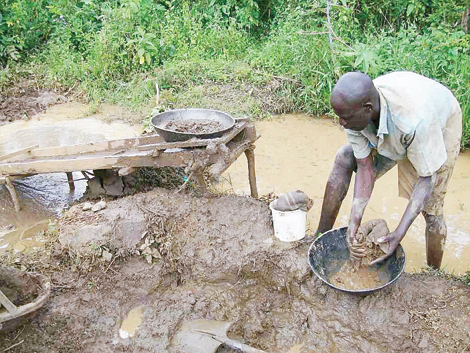×
The Standard e-Paper
Fearless, Trusted News
By ALLY JAMAH
 |
| A miner prospects for gold in Ikolomani, Kakamega. The new Mining Bill 2014 doesn’t have royalty-sharing clause. |
A storm is brewing between the national government and counties over a proposed law that excludes a formula for sharing proceeds from minerals.